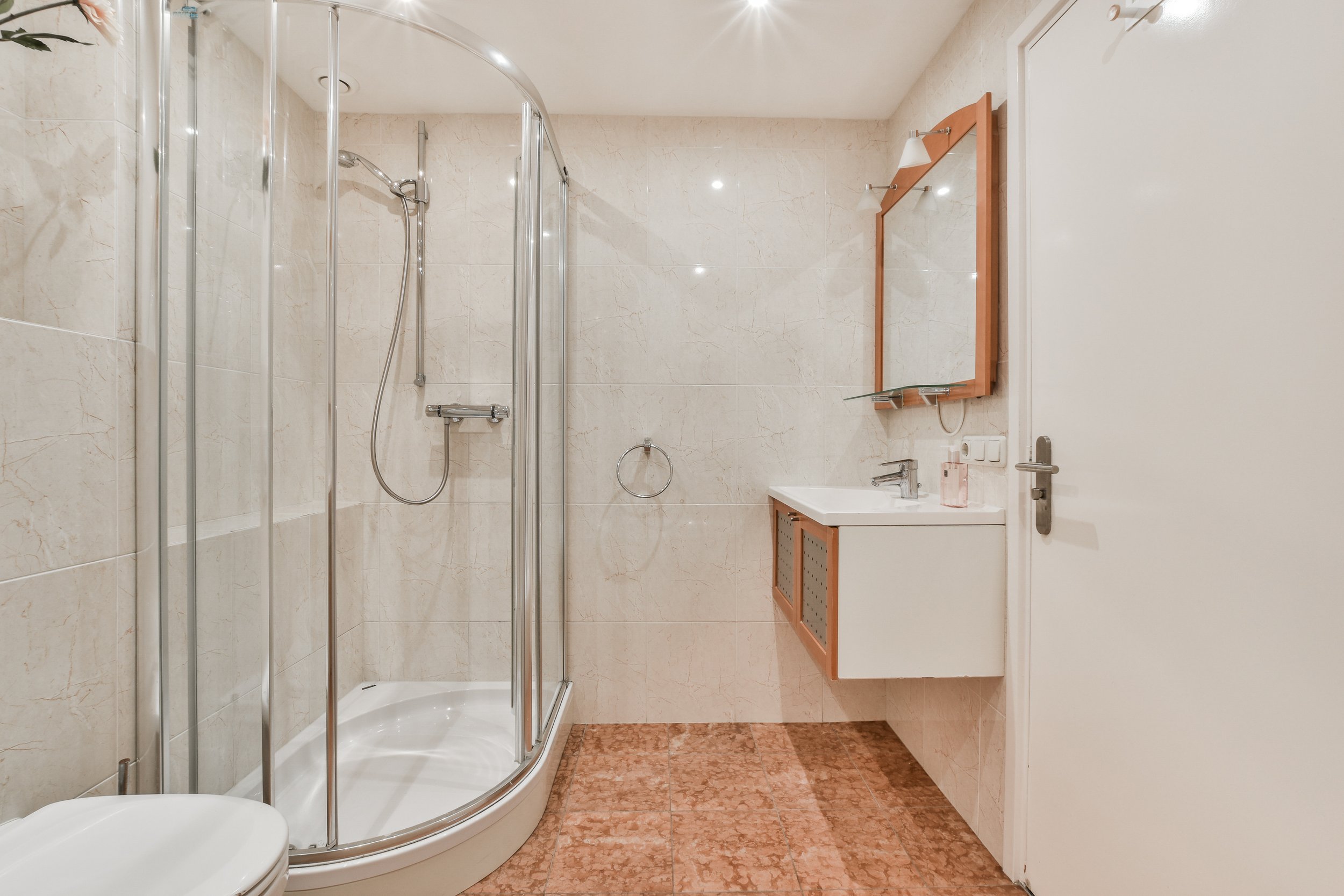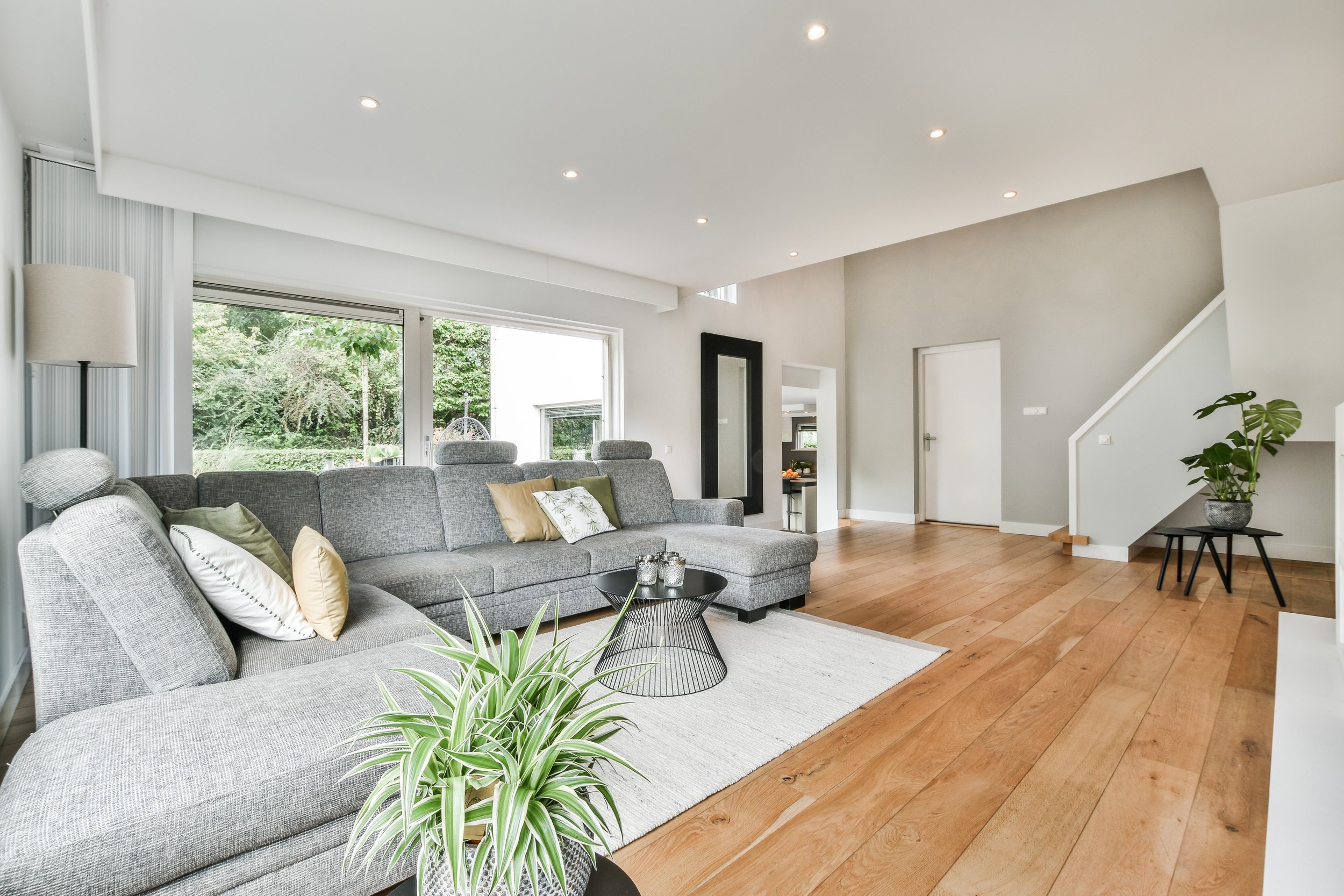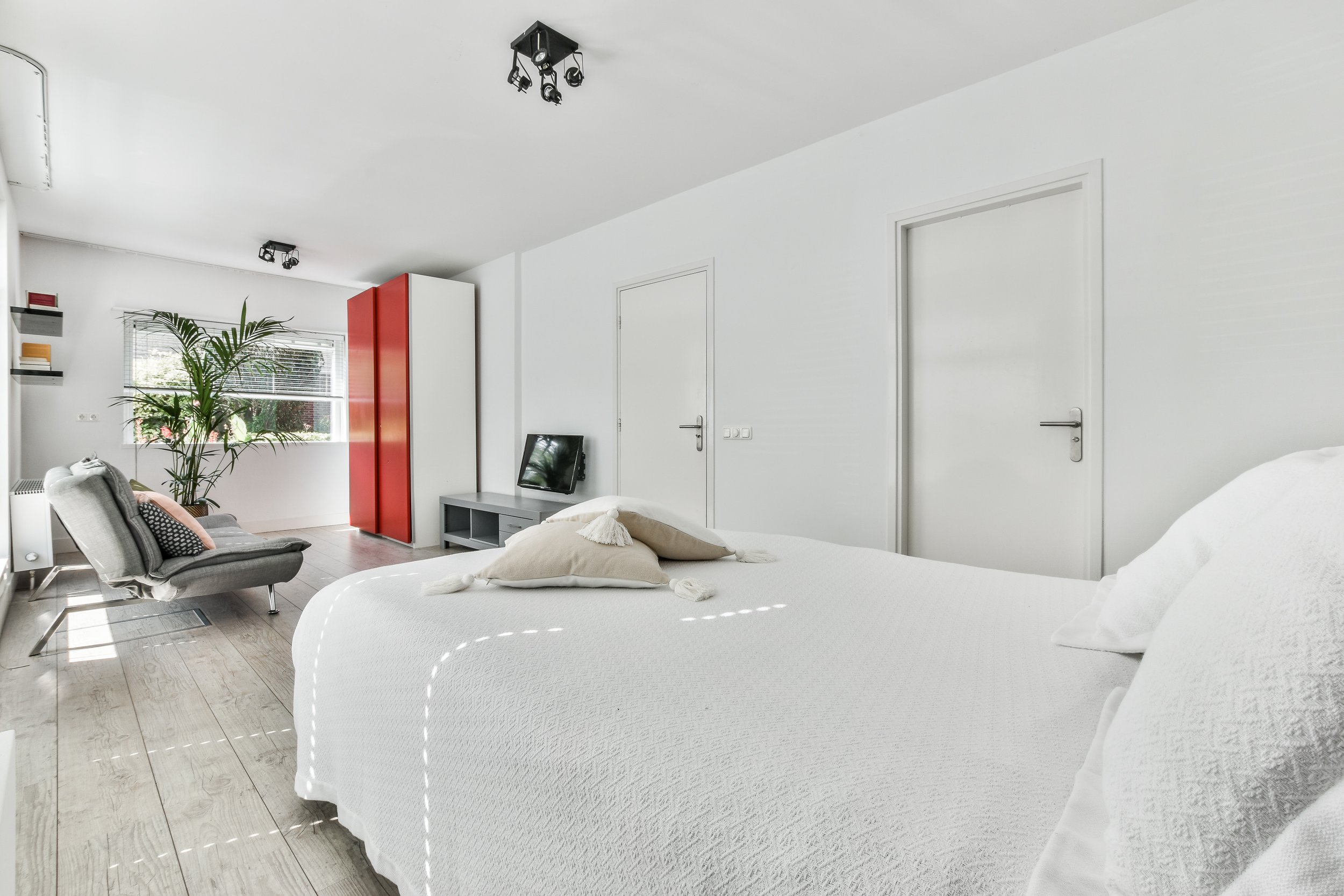
How Much Does It Cost to Hire a Contractor to Finish a Basement in Midtown Atlanta?
Homeowners in Midtown Atlanta ask this question because the numbers online vary wildly. Prices in Buckhead or Sandy Springs do not always match what works for Ansley Park, Morningside, or the Old Fourth Ward. Labor rates, permitting, and site conditions under older Midtown homes push budgets in specific ways. Here is a clear, local breakdown from a contractor for basement projects that sees these jobs week after week.
The quick answer: typical Midtown ranges
Most Midtown Atlanta basement finishes land between $55 and $125 per square foot. On a 900-square-foot basement, that equals $49,500 to $112,500. A basic finish with drywall, LVP flooring, simple recessed lighting, one bathroom rough-in, and code-compliant egress often runs $60–$85 per square foot. High-spec builds with a media room, wet bar, custom shower, and upgraded millwork move into the $95–$140 per square foot range.
Tight access, older foundations, moisture mitigation, or new egress windows can add 10–25% to those figures. The best way to narrow your number is a site visit by a local contractor who builds in Midtown’s housing stock and knows City of Atlanta permitting.
Why Midtown basements cost what they cost
Many Midtown homes were built long before finished basements were common. That affects framing layout, ceiling heights, and drainage. A 1930s Morningside bungalow may need slab trenching to run plumbing for a bathroom. A 1950s brick ranch in Virginia-Highland may have block walls that require interior drainage and a vapor barrier before framing. Small driveways or rear-lot access in Midtown often require hand-carry demolition and material runs, which slows production and increases labor.
Contractors who price basements in this area add time for inspections with the City of Atlanta, potential historical considerations near protected zones, and extra care around existing mechanical systems. These variables show up in the bid, so two homes with the same size can have very different totals.
Line-item costs you can expect
Design and plans: $2,000–$6,000. Simple plan sets sit at the lower end; projects with structural changes or steel posts land higher. Good drawings save money later by cutting change orders.
Permits and inspections: $1,000–$2,500 within the City of Atlanta. Basement bathrooms and new windows trigger additional inspection stops. Midtown addresses sometimes see longer review times; plan for this in the schedule.

Framing and insulation: $12–$22 per square foot of finished area. Basement framing takes shimming, treated plates at slabs, and careful thermal breaks. Spray foam is pricier than batt insulation but can solve comfort problems in humid months.
Drywall and paint: $8–$14 per square foot of wall and ceiling surface. Smooth ceilings cost more than light texture. Accent walls, darker paints, and enamel on doors increase labor time.
Flooring: $4–$12 per square foot installed. LVP and engineered hardwood remain the most common in Atlanta basements because they handle humidity better than solid hardwood. Polished concrete is a solid option when headroom is tight.
Electrical and lighting: $3,500–$12,000. Recessed LED cans, code-required arc-fault protection, smoke/CO detectors, and subpanel work can move this number. Media rooms and gyms usually need extra circuits.
HVAC: $2,500–$10,000. Tapping the existing system is cheaper if capacity allows. Otherwise, a dedicated ductless mini-split provides tight zone control and helps avoid upstairs temperature swings.

Plumbing: $4,000–$18,000. Powder rooms run less, full baths more. If the sewer line is higher than the slab, add an ejector pump system. Wet bars with a small sink are modest adds if lines are close.
Moisture control: $1,500–$12,000. Interior drain, sump basin, vapor barrier, and sealed sill plates are common. Skipping this is the fastest way to ruin a finished basement in Atlanta’s humid climate.
Egress and windows: $2,500–$8,000 per opening. Code egress is non-negotiable for any bedroom. Window wells and structural headers influence cost.
Millwork and doors: $2,000–$8,000. Solid-core doors help with sound. Built-ins and stair upgrades can add both value and budget.
Case example: A 1,000-square-foot Midtown basement with a den, office, full bath, LVP flooring, 14 recessed lights, a small wet bar, spray foam in rim joists, one egress window, and a mini-split typically runs $85,000–$115,000 depending on access and plumbing runs.
Budget drivers that matter in Midtown
Ceiling height and obstructions shape the design. Duct rerouting or a soffit strategy can save thousands. In a Piedmont Park-adjacent project, shifting a main trunk 12 inches cost $2,800 and preserved an eight-foot ceiling instead of a patchwork of low soffits.
Bathroom location dictates cost. A bath stacked under existing plumbing is cheaper. A bath on the far side of the basement can require slab cutting and longer vent runs. Homeowners who shift a bathroom 10–15 feet to line up with the main stack often save $2,000–$4,000.

Moisture history decides finishes. A space with a prior seepage issue needs drainage first. Builders see many Midtown basements with minor hydrostatic pressure during heavy storms. Installing an interior perimeter drain and sump before finishing avoids mold remediation later, which can cost more than the original fix.
Existing stairs affect safety and code. Steep or irregular treads trigger rebuilds. Reframing a basement stair in a 1930s home can run $3,500–$7,500 but improves daily use and resale.
Sound control is worth the spend if bedrooms sit above. Resilient channels, mineral wool, and solid-core doors add $2–$6 per square foot of ceiling and wall area but make the space feel separate and quiet.
Timeline and permitting in the City of Atlanta
From first visit to final paint, most projects take 8–14 weeks once permits are approved. Plan an extra 2–6 weeks for design and permit review. Inspections usually occur at framing, rough MEP (mechanical, electrical, plumbing), insulation, and final. Booking inspections early helps prevent gaps in the schedule. Midtown projects that https://www.heidecontracting.com/basement-finishing add egress openings or exterior grading sometimes need zoning input, which can add a week or two.
Where basements ROI stands in Atlanta
Finished basements in Midtown often return 60–75% at resale, higher when the layout adds a legal bedroom and bath. Homes near Georgia Tech and the BeltLine benefit from flexible spaces that function as guest suites or short-term work zones. Appraisers give value for heated, finished square footage, but they still weigh ceiling height, natural light, and code compliance. A well-lit family room with a proper bedroom, bath, and storage beats a dark, chopped-up plan every time.
Smart ways to manage the budget without cutting quality
Choose one feature wall, not five. Concentrate tile or wood accents in focal areas and keep the rest clean. Pick durable midline materials. Good LVP, quartz for the bar, and porcelain tile in the bath hold up to moisture and traffic. Run plumbing and the electrical rough-in now for future upgrades. Stub for a future shower or add conduit to a media wall; it costs little during framing and saves cutting later. Keep the plan open. Fewer walls lower both framing and MEP labor, and open rooms show better in basements with limited daylight.
What a clear, local estimate should include
A dependable contractor for basement work in Midtown will produce a detailed scope, finish schedule, allowances, and a payment plan tied to milestones. The estimate should spell out moisture control steps, insulation type and R-values, egress compliance, and how HVAC load is handled. It should also explain exclusions such as furniture, AV programming, or landscaping after an egress cut. If two bids are thousands apart, look at allowances and moisture work; that is where the gaps usually live.
Red flags and good signs on contractors
Red flags: vague scopes, no permit line item, unwillingness to discuss egress or moisture, and pressure to skip inspections. Good signs: clear communication, recent Midtown references, photos of similar basements, and a site-walk that measures ceiling drops, duct paths, and plumbing fall. Contractors who bring a laser level and talk through head heights are usually the ones who hit the budget and schedule.
A quick homeowner checklist to start right
- Confirm ceiling height and identify lowest obstructions.
- List must-haves: bath, bedroom, media area, storage.
- Gather moisture history: past seepage, odors, sump pumps.
- Set a realistic budget range per square foot.
- Ask for a site visit and a written scope from a local contractor for basement projects.
What Heide Contracting brings to Midtown basements
Heide Contracting builds basements across Midtown, Piedmont Heights, and neighboring intown districts. The team addresses moisture first, plans clean duct routing to protect headroom, and builds to City of Atlanta codes with clear, documented inspections. Homeowners appreciate straightforward language on allowances and weekly updates with photos. The company schedules work to minimize upstairs disruption, keeps pathways clean, and coordinates inspections to prevent idle days.
A recent project near Ponce de Leon Avenue converted a damp storage level into a bright 850-square-foot suite with a den, guest bedroom, and a curbless shower. The budget landed at $78 per square foot. The savings came from aligning the bath with the existing stack, using a ductless mini-split for comfort control, and limiting custom millwork to a single media wall.
Ready to price your Midtown basement?
Every basement is a little different, and Midtown homes bring their own quirks. A 30-minute on-site review is the fastest way to lock the budget. Heide Contracting will measure, check moisture, review egress options, and provide a written estimate with line items and a realistic timeline. If the goal is a clean, durable space that passes inspection and feels like the rest of the home, book a visit. Call Heide Contracting or request a consultation online to get a local, accurate price for finishing your Midtown Atlanta basement.
Heide Contracting provides renovation and structural construction services in Atlanta, GA. Our team specializes in load-bearing wall removal, crawlspace conversions, and basement excavations that expand and improve living areas. We handle foundation wall repairs, masonry, porch and deck fixes, and structural upgrades with a focus on safety and design. Whether you want to open your floor plan, repair structural damage, or convert unused space, we deliver reliable solutions with clear planning and skilled work. Heide Contracting
Atlanta,
GA,
USA
Phone: (470) 469-5627 Website:
https://www.heidecontracting.com,
Basement Conversions
Instagram: @heidecontracting
Facebook: Heide Contracting